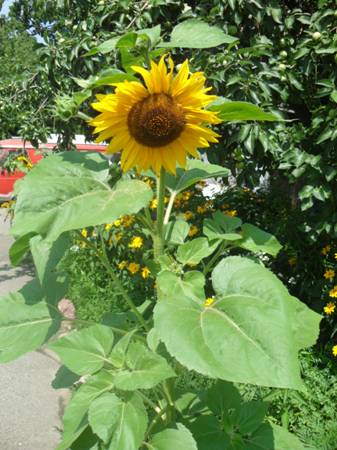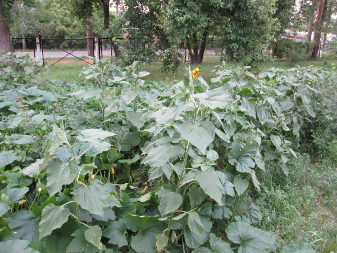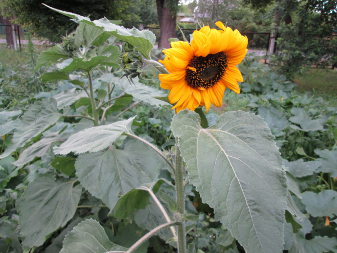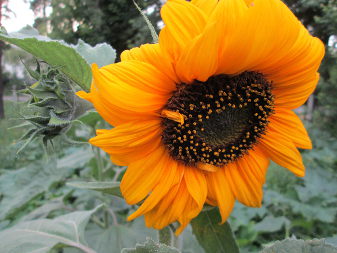






Sunflower (Helianthus annuus), fam. Asteraceae.
Sometimes grows in the city streets, along the private houses. Certainly, this is not comparable to huge scale of growing sunflowers in the whole Ukraine.
Just a couple hundred years ago only a few people knew about this plant, whereas now the production scope of its seeds and oil is overwhelming. At the same time, some people recommend to consume even more of these products, due to reportedly high levels of essential nutrients (vitamins B1, B6, E, minerals – selenium, zinc, and complete protein in the seeds). Some, however, also note the danger of fat overconsumption and the ability of sunflower to accumulate heavy metals (cadmium). Despite all alleged benefits, the health level of overall population declines – it seems not to add up…
Now, more and more investigations claim that excess (i.e. more than about 1 spoon per day) consumption of polyunsaturated oils is very unnatural, and with time it leads to cancer, diabetes, obesity, premature aging, trombosis, arthritis, chronic fatigue and immunodeficiency. These fats oxidize quickly, forming free radicals, and the body spends much more vitamin E to fight them than the seemingly high quantity initially contained in the oil. And sunflower is one of examples to contain a lot of such fats (linoleic acid). It is particularly dangerous to fry in this oil or to eat roasted sunflower seeds. Possibly, only the raw sprouted sunflower seeds can be useful in winter season, when it is difficult to get other fresh greens. The scientists hardly recommend for people who care about their health to replace sunflower oil with olive or coconut oils, which contain much less dangerous linoleic acid.
A tincture of flowers and leaves of sunflower is used against fever, migraine, neuralgia and hives, psoriasis, kidney diseases, and poor appetite.